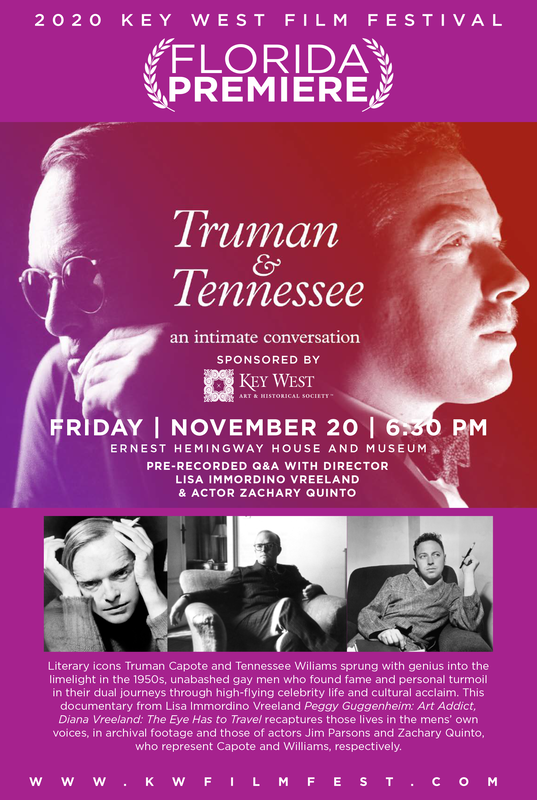|
Despite the 13 year age difference the men were very alike in many ways. This documentary serves as more of a compare-and-contrast than focusing particularly on their relationship. Indeed, we never see them speak to each other directly or in the same room. Both felt like outsiders growing up and used writing as a way to create new, more accepting and more satisfactory worlds. Both were openly gay in a time where it was far less accepted, and both sadly were prone to depression and addiction. We go deeper than that though, as Vreeland contrasts intimate interview questions and excerpts to delve into what each of them thought about sex, sexuality, friendship and love. What comes across is how witty and thoughtful each of them are, as well as how surprisingly honest with their feelings and histories. The film is intimate in that we learn about their struggles, hopes, emotions and histories. But visually it’s more constrained. There are snippets from film versions of their work and interviews but it mostly relies on panning across photographs to illustrate the topic being discussed. This turns the film into more of an essay than a visual experience and makes it unfortunately a little less absorbing. It’s also more of a character study than holding much story or intrigue. For fans of the men in question and their influence on American literature that’s certainly not going to be a problem. For the casual viewer though, it may take more effort to stay focussed. It’s a tragedy that such insightful and creative people suffered from depression and loneliness. Indeed, they both sought the help of “Dr. Feelgood” and became addicted to different substances. It’s also such a shame that they were disappointed to see their work made into films that had the endings changed due to censorship. To add insult to injury the film adaptations are much more easily accessible and have more longevity than stage performances. But the fact that the writings of each are brought to life by openly gay actors is a great way to honour their legacy. Jim Parsons voices Truman Capote and Zachary Quinto voices Tennessee Williams. This approach suggests the difficulties Capote and Williams faced in their personal lives, and their open attitudes towards their own sexuality, helped many others to feel more free, especially in the creative space. Their open attitudes helped to pave the way for many who came after them. As Williams states “If you can’t be yourself what’s the point of being anything at all”. It is a bit disappointing that both men were treated as separate people to compare with each other, rather than delving into their relationship. Perhaps they provided each other with support or influenced each other’s careers in some way.
While visually a little underwhelming and lacking in much story per se, this documentary shows us the inner lives and demons of two literary icons. It celebrates creativity and the joy that can come from literature despite whatever pain might be in your own life. Comments are closed.
|
AuthorHi, I'm Caz. I live in Edinburgh and I watch a lot of films. My reviews focus mainly on women in film - female directors or how women are represented on screen. Archives
December 2021
Categories
All
|





 RSS Feed
RSS Feed
